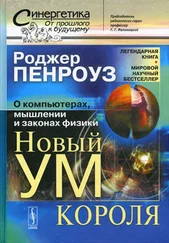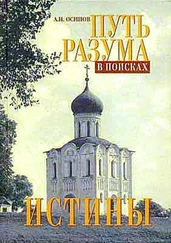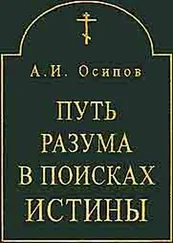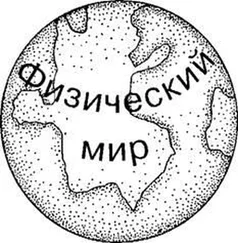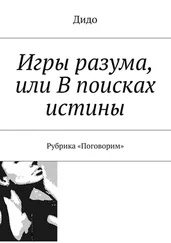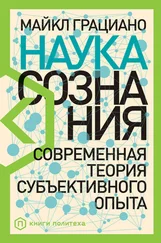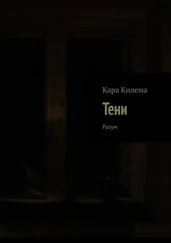[252] Majorana, E. (1932). Atomi orientati in campo magnetico variabile. Nuovo Cimento, 9, 43-50.
[253] Manaster-Ramer, A., Savitch, W.J., Zadrozny, W. (1990). Godel redux. Behavioural and Brain Sciences, 13 (4), 675.
[254] Mandelkow, E.-M., Mandelkow, F. (1994). Microtubule structure. Curr. Opinions Structural Biology, 4, 171-179.
[255] Margulis, L. (1975). Origins of eukaryotic cells. Yale University Press, New Haven, CT.
[256] Markov, A. A. (1958). The insolubility of the problem of homeomorphy. Dokl. Akad. Nauk. SSSR, 121, 218-220.
[257] Marr, D.E. (1982). Vision: a computational investigation into the human representation and processing of visual information. Freeman, San Francisco.
[258] Marshall, I.N. (1989). Consciousness and Bose-Einstein condensates. New Ideas in Psychology, 7.
[259] Mermin, D. (1985). Is the moon there when nobody looks? Reality and the quantum theory. Physics Today, 38, 38-47.
[260] Mermin, D. (1990). Simple unified form of the major no-hidden-variables theorems. Phys. Rev. Lett, 65, 3373-3376.
[261] Michie, D., Johnston, JR. (1984). The creative computer. Machine intelligence and human knowledge. Viking Penguin.
[262] Minsky, M. (1968). Matter, mind and models. В сб. Semantic information processing (ed. M. Minsky). MIT Press, Cambridge, Massachusetts.
[263] Minsky, M. (1986). The society of mind. Simon and Schuster, New York.
[264] Minsky, M., Papert, S. (1972). Perceptrons: an introduction to computational geometry. MIT Press, Cambridge, Massachusetts.
[265] Misner, C.W., Thorne, K. S., Wheeler, J. A. (1973). Gravitation. Freeman, New York.
[266] Moore, A. W. (1990). The infinite. Routledge, London.
[267] Moravec, H. (1988). Mind children: the future of robot and human intelligence. Harvard University Press, Cambridge, Massachusetts.
[268] Moravec, H. (1994). The Age of Mind: transcending the human condition through robots. Готовится к печати.
[269] Mortensen, C. (1990). The powers of machines and minds. Behavioural and Brain Sciences', 13(4), 678.
[270] Mostowski, A. (1957). Sentences undecidable in formalized arithmetic: an exposition of the theory of Kurt Godel. North-Holland, Amsterdam.
[271] Nagel, E., Newman, J. R. (1958). Godel's proof. Routledge and Kegan Paul.
[272] Newell, A., Simon, H.A. (1976). Computer science as empirical enquiry: symbols and search. Communications of the ACM, 19, 113-126.
[273] Newell, A., Young, R., Polk, T. (1993). The approach through symbols. В сб. The simulation of human intelligence (ed. D. Broadbent). Blackwell, Oxford.
[274] Newton, I. (1687). Philosophiae Naturalis Principia Mathematica. Репринт: Cambridge University Press.
[275] Newton, Г. (1730). Opticks. 1952, Dover, New York.
[276] Oakley, D.A. (ed.) (1985). Brain and mind. Methuen, London.
[277] Obermayer, K., Teich, W.G., Mahler, G. (1988). Structural basis of multistationary quantum systems. I. Effective single-particle dynamics. Phys. Rev., B37, 8096-8110.
[278] Obermayer, K., Teich, W.G., Mahler, G. (1988). Structural basis of multistationary quantum systems. II. Effective few-particle dynamics. Phys. Rev., B37, 8111-8121.
[279] Omnes, R. (1992). Consistent interpretations of quantum mechanics. Rev. Mod. Phys., 64, 339-382.
[280] Pais, A. (1991). Niels Bohr's times. Clarendon Press, Oxford.
[281] Pauling L. (1964). The hydrate microcrystal theory of general anesthesia. Anesth. Analg., 43, 1.
[282] Paz, J. P., Zurek, W.H. (1993). Environment-induced decoherence, classicality and consistency of quantum histories. Phys. Rev., D48 (6), 2728-2738.
[283] Paz, J.P., Habib, S., Zurek, W.H. (1993). Reduction of the wave packet: preferred observable and decoherence time scale. Phys. Rev., D47 (2), 3rd Series, 488-501.
[284] Pearie, P. (1976). Reduction of the state-vector by a nonlinear Schrodinger equation. Phys. Rev., D13, 857-868.
[285] Pearte, P. (1989). Combining stochastic dynamical state-vector reduction with spontaneous localization. Phys. Rev., A39, 2277-2289.
[286] Pearie, P. (1992). Relativistic model state-vector reduction. В сб. Quantum chaos — Quantum measurement, NATO Adv. Sci. Inst. Ser. С Math. Phys. Sci. 358 (Copenhagen 1991). Kluwer, Dordrecht.
[287] Peat, F.D. (1988). Superstrings and the search for the theory of everything. Contemporary Books, Chicago.
[288] Penrose, О. (1970). Foundations of statistical mechanics: a deductive treatment. Pergamon, Oxford.
[289] Penrose, O., Onsager, L. (1956). Bose-Einstein condensation and liquid helium. Phys. Rev., 104, 576-584.
[290] Penrose, R. (1980). On Schwarzschild causality — a problem for "Lorentz covariant" general relativity. В сб. Essays in general relativity (A. Taub Festschrift) (ed. F. J.Tipler), 1-12. Academic Press, New York.
[291] Penrose, R. (1987). Newton, quantum theory and reality. В сб. 300 Years of gravity (ed. S. W. Hawking, W. Israel). Cambridge University Press.
[292] Penrose, R. (1990). Author's response, Behavioural and Brain Sciences, 13 (4), 692.
[293] Penrose, R. (1991). The mass of the classical vacuum. В сб. The philosophy of vacuum (ed. S. Saunders, H. R. Brown). Clarendon Press, Oxford.
[294] Penrose, R. (1991). Response to Tony Dodd's "Godel, Penrose, and the possibility of AI". Artificial Intelligence Review, 5, 235.
[295] Penrose, R. (1993). Gravity and quantum mechanics. В сб. General relativity and gravitation 1992. Proceedings of the Thirteenth International Conference on General Relativity and Gravitation held at Cordoba, Argentina 28 June-4 July 1992. Part I: Plenary lectures (ed. R. J. Gleiser, C. N. Kozameh, O. M.Moreschi). Institute of Physics Publications, Bristol.
[296] Penrose, R. (1993). Quantum non-locality and complex reality. В сб. The Renaissance of general relativity (in honour of D.W.Sciama) (ed. G.Ellis, A.Lanza, J.Miller). Cambridge University Press.
[297] Penrose, R. (1993). Setting the scene: the claim and the issues. В сб. The simulation of human intelligence (ed. D. Broadbent). Blackwell, Oxford.
[298] Penrose, R. (1993). An emperor still without mind. Behavioural and Brain Sciences, 16, 616-622.
[299] Penrose, R. (1994). On Bell non-locality without probabilities: some curious geometry. В сб. Quantum reflections (in honour of J.S.Bell) (ed. J.Ellis, A.Amati). Cambridge University Press.
[300] Penrose, R. (1994). Non-locality and objectivity in quantum state reduction. В сб. Fundamental aspects of quantum theory (ed. J. Anandan, J. L. Safko). World Scientific, Singapore.
[301] Penrose, R., Rindler, W. (1984). Spinors and space-time, Vol. 1: Two-spinor calculus and relative fields. Cambridge University Press.
[302] Penrose, R., Rindler, W. (1986). Spinors and space-time, Vol. 2: Spinor and twistor methods in space-time geometry. Cambridge University Press.
[303] Percival, I. C. (1994). Primary state diffusion. Proc. R. Soc. Lond., А (статья отправлена в журнал).
[304] Peres, A. (1985). Reversible logic and quantum computers. Phys. Rev., A32 (6), 3266-3276.
[305] Peres, A. (1990). Incompatible results of quantum measurements. Phys. Lett., A151, 107-108.
[306] Peres, A. (1991). Two simple proofs of the Kochen—Specker theorem. /. Phys. A: Math. Gen., 24, L175-L178.
[307] Pedis, D. (1990). The emperor's old hat. Behavioural and Brain Sciences, 13 (4), 680.
[308] Planck, M. (1906). The theory of heat radiation (пер. на англ.: М. Masius, основана на лекциях, прочитанных в Берлине в 1906/1907 годах). 1959, Dover, New York.
[309] Popper, K.R., Eccles, J.R. (1977). The self and its brain. Springer International.
[310] Post, E. L. (1936). Finite combinatory processes-formulation I, Jour. Symbolic Logic, 1, 103-105.
Читать дальше
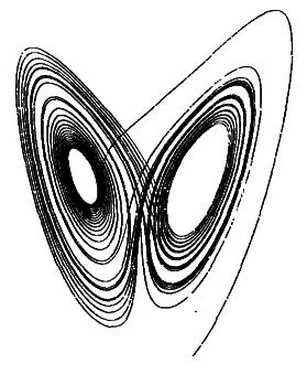
![Юрий Фролов - От инстинкта до разума [Очерк науки о поведении]](/books/27503/yurij-frolov-ot-instinkta-do-razuma-ocherk-nauki-o-thumb.webp)

